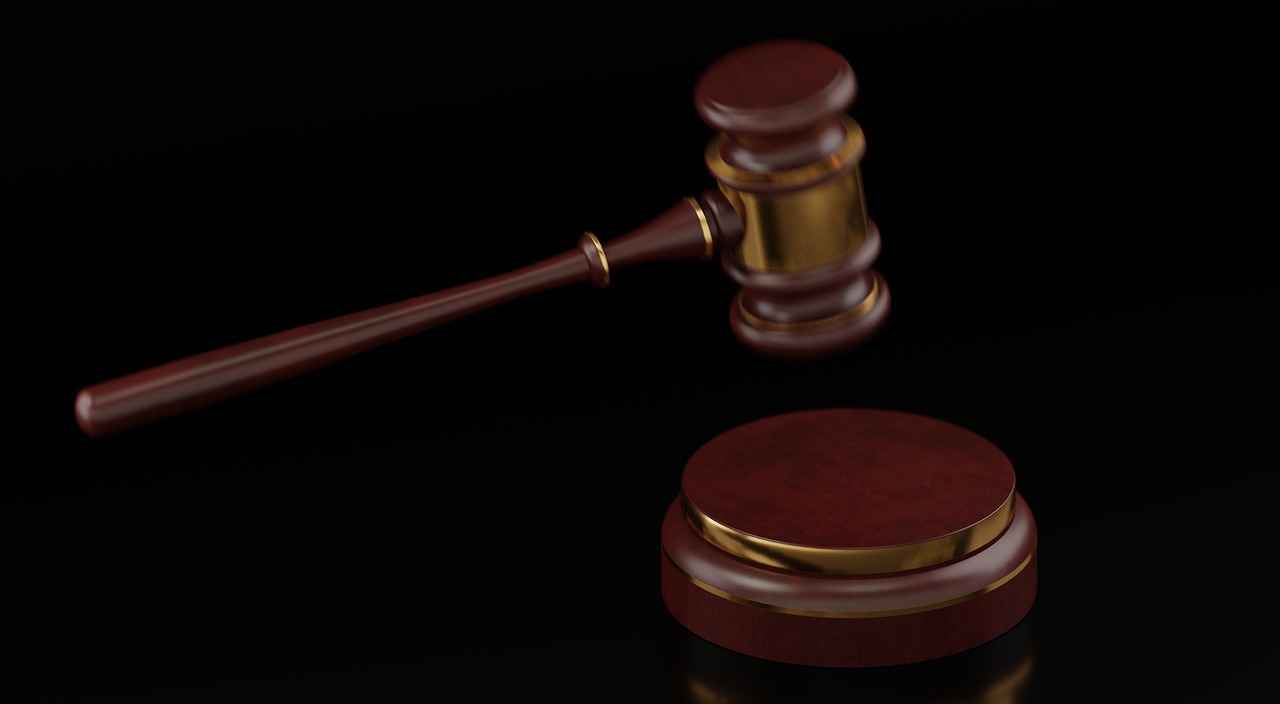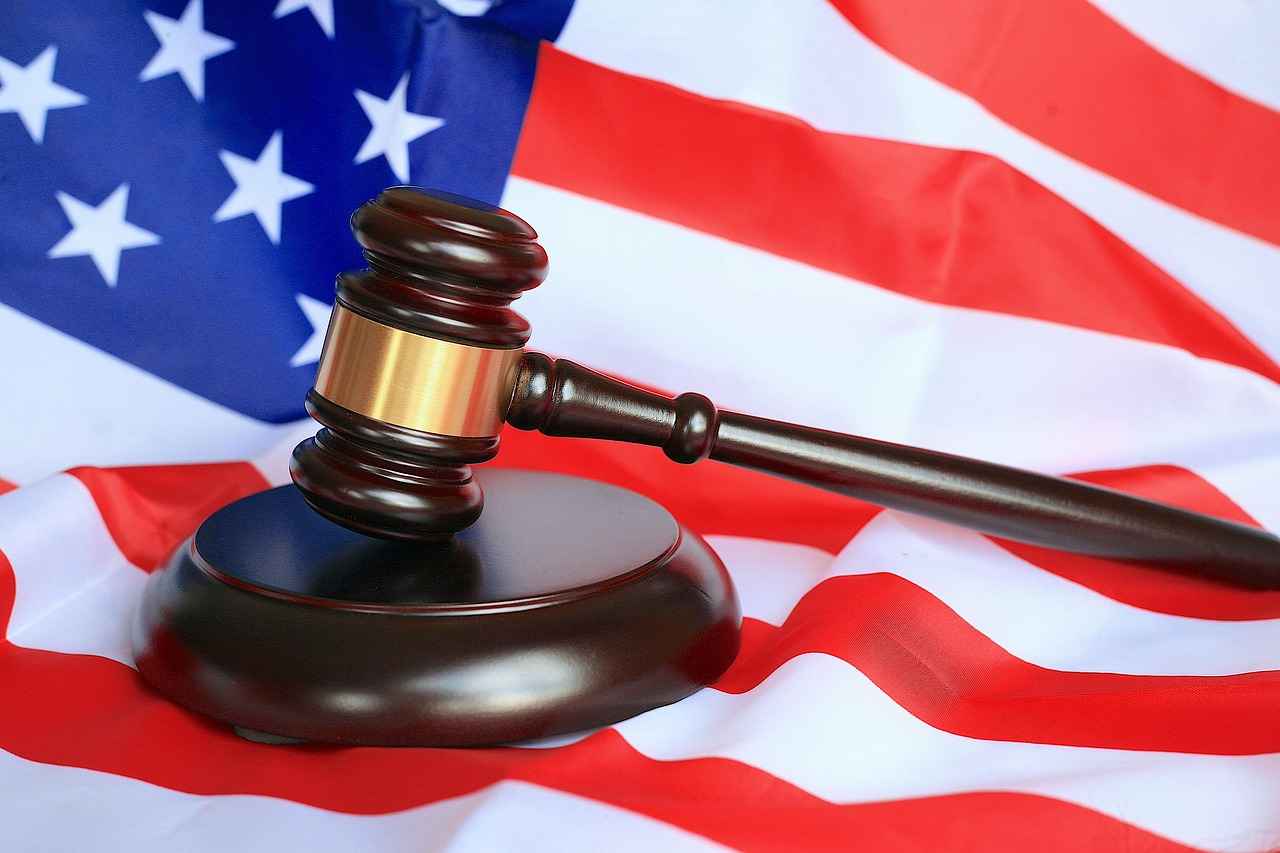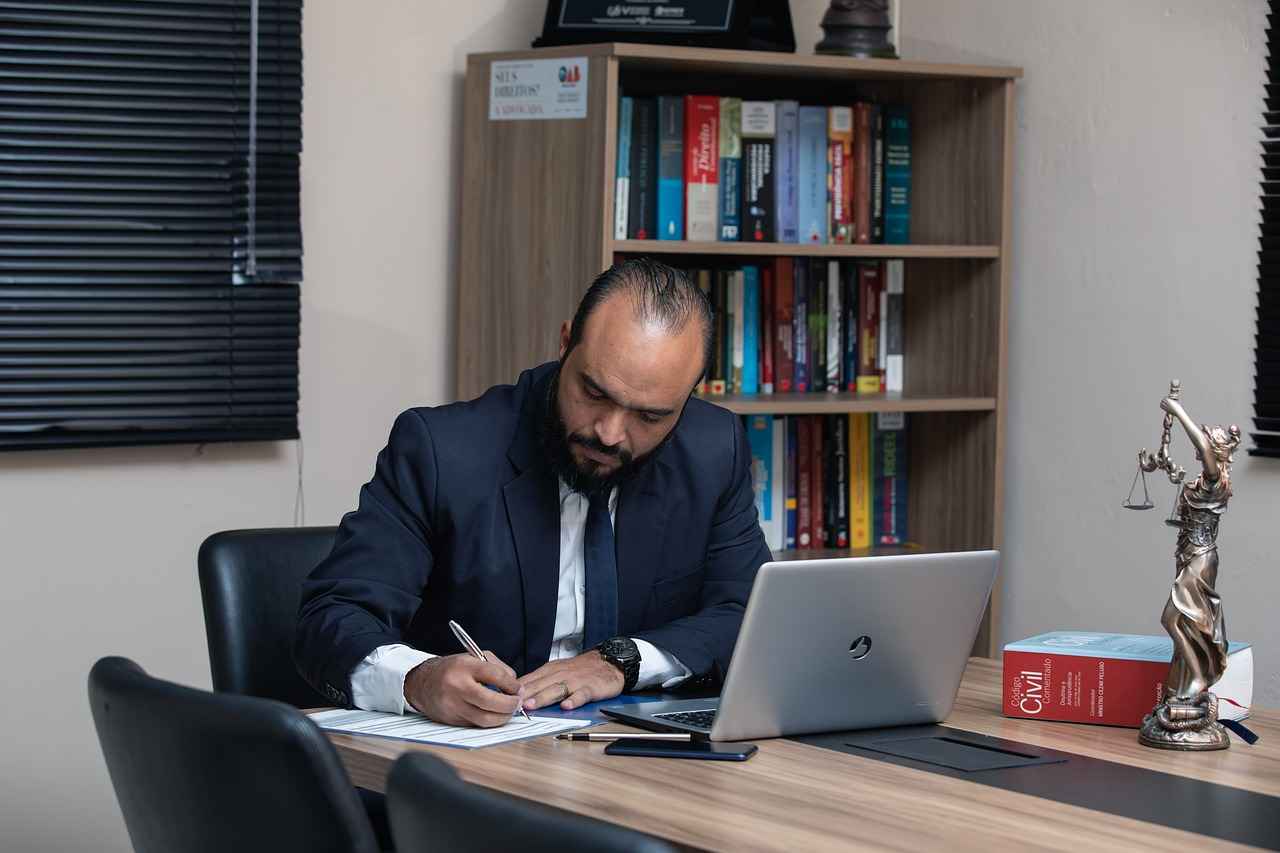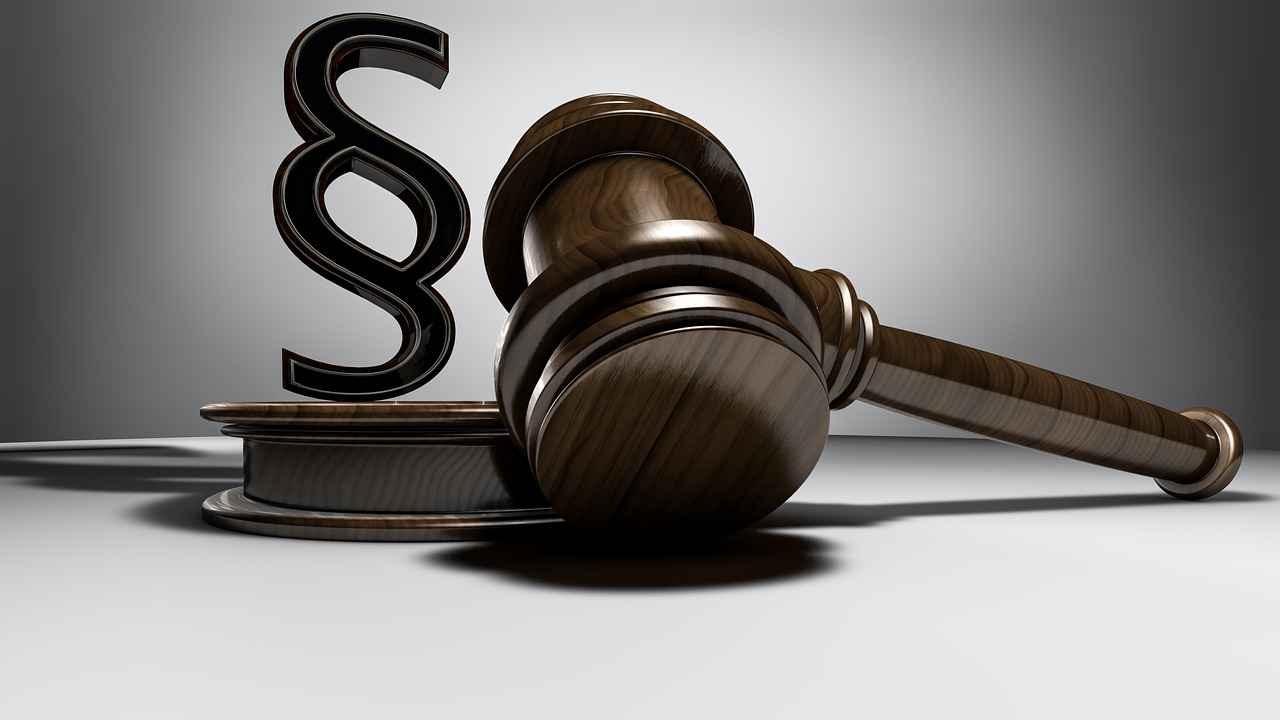This article provides a comprehensive guide to navigating the legal landscape in Tucson, Arizona, helping individuals identify the most qualified lawyers for various legal cases.
Personal injury cases are prevalent in the legal system, involving incidents where individuals seek compensation for injuries caused by another party’s negligence. To find a qualified personal injury attorney, consider the following steps:
- Research Local Lawyers: Utilize online directories such as Avvo or FindLaw to find lawyers specializing in personal injury.
- Check Credentials: Look for attorneys with a strong track record in personal injury cases, including successful settlements and verdicts.
- Read Reviews: Client testimonials can provide insight into an attorney’s reputation and effectiveness.
- Consultation: Schedule a consultation to discuss your case and evaluate the attorney’s approach.
Medical malpractice cases require specialized knowledge and experience. Here’s how to locate an attorney skilled in this field:
- Specialization: Ensure the attorney specializes in medical malpractice and has a background in healthcare law.
- Success Rate: Investigate their history of handling medical malpractice cases and their success rates.
- Professional Associations: Membership in organizations such as the American Bar Association can indicate credibility.
- Peer Reviews: Look for peer-reviewed ratings from other lawyers in the field.
Breach of contract disputes can arise in both business and personal agreements. Finding the right attorney is crucial:
- Experience in Contract Law: Seek an attorney with extensive experience in contract law and a successful history in resolving disputes.
- Negotiation Skills: Evaluate their negotiation skills, as many contract disputes can be settled out of court.
- Client Focus: Choose an attorney who prioritizes your needs and communicates effectively.
Property disputes can involve ownership, boundaries, and rights. To find a suitable lawyer:
- Real Estate Expertise: Look for attorneys who specialize in real estate law and have experience with property disputes.
- Local Knowledge: An attorney familiar with Tucson’s real estate market can provide valuable insights.
- Trial Experience: Ensure they have trial experience in property disputes, as some cases may go to court.
Landlord-tenant disputes are common and may involve eviction or lease agreements. To find a knowledgeable attorney:
- Specialization: Seek attorneys who specialize in landlord-tenant law.
- Local Regulations: Choose someone familiar with Arizona’s landlord-tenant laws.
- Conflict Resolution Skills: Look for attorneys skilled in mediation and negotiation.
Defamation, including libel and slander, can significantly impact reputations. To find the right legal representation:
- Media Law Experience: Seek attorneys with a background in media law and defamation cases.
- Successful Outcomes: Investigate their history of successful defamation claims.
- Understanding of Free Speech: Choose someone who understands the balance between defamation and free speech rights.
Employment disputes can involve wrongful termination, discrimination, and wage issues. Here’s how to find a qualified lawyer:
- Employment Law Expertise: Look for attorneys specializing in employment law.
- Client Reviews: Read reviews from previous clients to gauge their effectiveness.
- Knowledge of Labor Laws: Ensure they are well-versed in federal and state labor laws.
Product liability cases involve holding manufacturers accountable for defective products. To find a suitable attorney:
- Specialization: Seek lawyers who specialize in product liability and have a strong background in consumer protection.
- Trial Experience: Ensure they have experience taking product liability cases to trial.
- Network of Experts: Look for attorneys with access to experts in engineering and safety standards.
Wrongful death cases are emotionally challenging. To find the right legal support:
- Compassionate Representation: Seek attorneys known for their compassionate approach to sensitive cases.
- Experience in Wrongful Death Cases: Ensure they have a proven track record in handling wrongful death claims.
- Understanding of State Laws: Choose someone familiar with Arizona’s wrongful death statutes.
Class action lawsuits allow individuals to collectively sue for damages. Here’s how to find an experienced attorney:
- Class Action Experience: Look for attorneys who specialize in class action lawsuits and have a successful history.
- Reputation: Research their reputation in handling large-scale litigation.
- Communication Skills: Choose someone who communicates clearly about the process and potential outcomes.
Assault and battery cases involve personal injury and criminal charges. To find the right lawyer:
- Dual Expertise: Seek attorneys who have experience in both civil and criminal law.
- Trial Experience: Ensure they have a strong trial record in assault and battery cases.
- Client-Centric Approach: Choose someone who prioritizes your needs and provides personal attention.
Criminal defense cases require specialized legal knowledge. Here’s how to find a qualified attorney:
- Experience in Criminal Law: Look for attorneys specializing in criminal defense.
- Track Record: Investigate their history of successful defenses in drug offenses and theft cases.
- Understanding of Legal Procedures: Ensure they are familiar with local court procedures and practices.
Family law encompasses divorce, child custody, and support matters. To find the right attorney:
- Specialization in Family Law: Seek attorneys who specialize in family law and have experience in divorce and custody cases.
- Empathy and Communication: Choose someone who demonstrates empathy and communicates effectively.
- Knowledge of State Laws: Ensure they understand Arizona’s family law statutes.

Understanding Personal Injury Cases
Understanding personal injury cases is essential for anyone seeking compensation for injuries sustained due to another party’s negligence. These cases can arise from a variety of incidents, including car accidents, slip and fall accidents, workplace injuries, and medical malpractice. The primary objective in a personal injury case is to establish that the other party was at fault and that their negligence directly resulted in your injuries.
To navigate the complexities of personal injury law effectively, it is crucial to find a qualified attorney who specializes in this area. Here are some important factors to consider when searching for the right legal representation:
- Experience and Specialization: Look for attorneys who have a proven track record in personal injury cases. An attorney specializing in this field will have the necessary knowledge and skills to handle your case effectively.
- Reputation: Research online reviews and testimonials from previous clients. A lawyer with a strong reputation for success and client satisfaction is more likely to provide you with the representation you need.
- Consultation: Most personal injury attorneys offer free consultations. Use this opportunity to discuss your case and assess whether the attorney understands your situation and can provide the legal support you require.
- Fee Structure: Understand the attorney’s fee structure before hiring them. Many personal injury lawyers work on a contingency basis, meaning they only get paid if you win your case. This can alleviate the financial burden of hiring legal representation.
Additionally, ensure that the attorney you choose is familiar with local laws and regulations, as these can vary significantly from state to state. In metropolitan areas such as New York City, Los Angeles, and Chicago, the legal landscape can be particularly competitive, making it all the more important to select a lawyer who stands out in their field.
When evaluating potential attorneys, be wary of red flags such as:
- High-pressure sales tactics during consultations.
- Lack of transparency regarding fees and costs.
- Inconsistent communication or difficulty in reaching the attorney.
By taking the time to thoroughly research and evaluate your options, you can find a personal injury attorney who will advocate for your rights and help you secure the compensation you deserve.

Medical Malpractice: Finding the Right Legal Help
Medical malpractice cases are among the most intricate types of legal disputes, often involving a labyrinth of medical records, expert testimonies, and complex laws. When patients suffer due to the negligence of healthcare professionals, it is crucial to seek legal representation that specializes in this niche. The right attorney can make a significant difference in the outcome of your case, potentially leading to substantial compensation for the victim.
To find a qualified medical malpractice attorney, consider the following steps:
- Research and Referrals: Start by asking for recommendations from friends, family, or healthcare professionals. Personal referrals can provide insight into an attorney’s reputation and effectiveness.
- Online Directories: Utilize online legal directories such as Avvo or FindLaw. These platforms allow you to filter attorneys based on their specialization, location, and client reviews.
- Check Credentials: Look for attorneys who are board-certified in medical malpractice law. This certification indicates a higher level of expertise and commitment to the field.
- Experience Matters: Choose an attorney with a proven track record in handling medical malpractice cases. Ask about their experience with similar cases and their success rates.
- Initial Consultation: Most attorneys offer a free initial consultation. Use this opportunity to ask questions about their approach, fees, and previous case outcomes. Pay attention to their communication style and whether they take the time to address your concerns.
It’s important to be aware of potential red flags when selecting a medical malpractice attorney. If an attorney makes unrealistic promises about the outcome of your case or pressures you to sign a contract immediately, consider it a warning sign. Additionally, avoid attorneys who lack transparency about their fees or have poor reviews from former clients.
In metropolitan areas like New York City or Los Angeles, the competition among lawyers can be intense, making it essential to conduct thorough research. Look for attorneys who are active in local legal communities and have a strong network of medical experts to support your case. Their connections can be invaluable in building a strong argument.
Ultimately, finding the right legal help for a medical malpractice case requires diligence and careful consideration. By following these guidelines, you can improve your chances of securing competent representation that understands the complexities of medical law and is committed to advocating for your rights.

Navigating Breach of Contract Disputes
Breach of contract disputes can occur in various contexts, affecting both business and personal agreements. These disputes arise when one party fails to fulfill their obligations as outlined in a contract, leading to potential financial and legal repercussions. Understanding the intricacies of contract law and finding a skilled attorney is essential for protecting your rights and interests.
To effectively navigate breach of contract disputes, it is crucial to first identify the specific type of contract involved. Contracts can be written, oral, or implied, and each type carries different legal implications. For instance, written contracts are generally more enforceable than oral agreements, which can lead to ambiguity and disputes over terms. Therefore, when seeking legal representation, it is important to find an attorney who specializes in the relevant type of contract law.
Finding the Right Attorney
When searching for an attorney to handle a breach of contract dispute, consider the following steps:
- Research Experience: Look for attorneys who have extensive experience in contract law, particularly in the specific area relevant to your case. This could include commercial contracts, employment agreements, or consumer contracts.
- Check Credentials: Verify the attorney’s credentials, including their education, bar association membership, and any special certifications related to contract law.
- Read Reviews: Online reviews and testimonials from previous clients can provide insight into an attorney’s reputation and success rate in handling similar cases.
- Consultation: Schedule consultations with potential attorneys to discuss your case. This meeting allows you to gauge their understanding of your situation, their approach to resolving disputes, and their communication style.
Red Flags to Avoid
While searching for legal representation, be mindful of potential red flags that may indicate an attorney is not the right fit for your needs:
- Lack of Transparency: If an attorney is vague about their fees, experience, or approach to your case, it may be a sign of unprofessionalism.
- Poor Communication: An attorney who does not respond promptly to inquiries or fails to keep you updated on your case may not prioritize your legal matters.
- Negative Reviews: Consistently poor feedback from former clients can indicate a pattern of inadequate representation.
Understanding Potential Outcomes
In breach of contract disputes, outcomes can vary significantly based on the circumstances of the case and the effectiveness of legal representation. Possible outcomes may include:
- Monetary Damages: The non-breaching party may be entitled to compensation for losses incurred due to the breach.
- Specific Performance: In some cases, the court may order the breaching party to fulfill their obligations under the contract.
- Settlement: Many disputes are resolved through negotiation or mediation, allowing both parties to reach a mutually agreeable solution without going to trial.
In summary, navigating breach of contract disputes requires a thorough understanding of contract law and the ability to find a qualified attorney. By conducting careful research, asking the right questions, and being aware of potential red flags, individuals can enhance their chances of a favorable outcome in their legal matters.

Property Disputes: Legal Representation Essentials
Property disputes can arise from a variety of issues, including ownership claims, boundary disagreements, and usage rights. These disputes often lead to significant legal challenges, which can be both time-consuming and costly if not addressed properly. Therefore, securing the right legal representation is crucial for effectively resolving these conflicts.
Understanding the Nature of Property Disputes
Property disputes can stem from various situations, such as inheritance issues, neighbor disagreements over land boundaries, or conflicts regarding lease agreements. Each case is unique, requiring a tailored approach. For instance, disputes over property lines may necessitate the involvement of surveyors, while ownership claims might require extensive documentation and witness testimonies. Recognizing the specific nature of your dispute is the first step in seeking appropriate legal counsel.
Finding a Qualified Real Estate Lawyer
When searching for a lawyer experienced in real estate law, consider the following methods:
- Referrals: Ask friends, family, or colleagues for recommendations based on their experiences.
- Online Research: Utilize legal directories such as Avvo or Martindale-Hubbell to find lawyers with good ratings and reviews.
- Consultation: Schedule initial consultations with potential lawyers to discuss your case and gauge their expertise.
Credentials and Experience to Look For
Not all lawyers specialize in property disputes. Look for attorneys who have:
- Specialized Knowledge: Ensure the lawyer has a background specifically in real estate or property law.
- Relevant Experience: Inquire about their past cases similar to yours and the outcomes achieved.
- Bar Association Membership: Check if they are members of local or national real estate law associations.
Red Flags to Avoid
While searching for a lawyer, be cautious of the following red flags:
- Lack of Communication: If a lawyer is unresponsive during the initial consultation, it may indicate future communication issues.
- High Pressure Tactics: Be wary of attorneys who pressure you into making quick decisions without fully understanding your options.
- Poor Reviews: Negative feedback from former clients can be a significant indicator of potential problems.
Understanding Fees and Payment Structures
Legal fees can vary widely among attorneys. Some may charge hourly rates, while others might work on a contingency basis, especially in cases involving financial compensation. Before hiring a lawyer, ensure you have a clear understanding of:
- Fee Structure: Ask about hourly rates, retainer fees, and any additional costs that may arise.
- Payment Plans: Some attorneys may offer flexible payment options to accommodate your financial situation.
- Written Agreement: Always request a written agreement outlining the fees and services provided.
Utilizing Mediation and Alternative Dispute Resolution
In many cases, property disputes can be resolved through mediation or arbitration, which can save time and money compared to traditional litigation. A lawyer experienced in these methods can help facilitate discussions between parties to reach a mutually agreeable solution. This approach not only reduces the emotional strain but also preserves relationships that might otherwise be damaged in a contentious legal battle.
The Importance of Local Knowledge
When choosing a lawyer, consider their familiarity with local laws and regulations. Real estate laws can vary significantly by state and even by city. A lawyer who is well-versed in Tucson’s property laws, for example, will be better equipped to navigate the specifics of your case, including zoning laws and local ordinances. This local expertise can be invaluable in crafting a strong legal strategy.
In summary, property disputes can be complex and multifaceted. Identifying a lawyer with the right expertise and experience is essential for effectively resolving these conflicts. By understanding the nature of your dispute, conducting thorough research, and being aware of potential red flags, you can find a competent attorney who will advocate for your rights and interests.

Landlord-Tenant Disputes: Legal Rights and Resources
Landlord-tenant disputes are a prevalent issue in the United States, often arising from misunderstandings or disagreements regarding lease agreements, property maintenance, and eviction processes. Both landlords and tenants have legal rights that must be respected, making it essential to understand these rights and the resources available to protect them. Here, we explore common scenarios that lead to disputes and how to find a knowledgeable attorney to help navigate these challenges.
Disputes can arise over various issues such as eviction, where landlords seek to remove tenants for non-payment or lease violations. Tenants may contest these evictions, arguing that proper legal procedures were not followed. Additionally, disagreements over repairs and maintenance can lead to conflict; tenants may feel that their landlords are neglecting their responsibilities to provide a safe living environment. Lease agreements can also be a source of contention, particularly if terms are ambiguous or not upheld by one party.
To effectively address landlord-tenant disputes, it is crucial to find a qualified attorney who specializes in real estate law. Here are some steps to consider:
- Research Local Attorneys: Start by searching for attorneys in your area who focus on landlord-tenant issues. Websites like Avvo and FindLaw provide directories and client reviews that can help narrow your options.
- Check Credentials: Look for attorneys with specific experience in landlord-tenant disputes. Membership in organizations such as the American Bar Association or local bar associations can be a good indicator of professionalism.
- Consult Multiple Attorneys: Schedule consultations with several attorneys to discuss your situation. Many offer free initial consultations, allowing you to gauge their expertise and approach.
- Ask for References: A reputable attorney should be able to provide references or testimonials from past clients, showcasing their success in similar cases.
- Beware of Red Flags: Be cautious of attorneys who guarantee outcomes, have poor communication skills, or pressure you into making quick decisions.
Understanding the legal landscape surrounding landlord-tenant disputes is crucial for both parties. Tenants should be aware of their rights to a habitable living space, while landlords must understand the legal processes involved in eviction and lease enforcement. By finding a knowledgeable attorney, both parties can navigate disputes more effectively, ensuring that their rights are protected throughout the process.

Defamation Cases: Understanding Your Legal Options
Defamation cases, which encompass both libel (written statements) and slander (spoken statements), can have severe consequences for individuals and businesses alike. The impact of a defamatory statement can lead to a tarnished reputation, loss of income, and emotional distress. Therefore, understanding your legal options and the process for pursuing a defamation claim is essential.
To begin with, the first step in addressing defamation is to consult with an attorney who specializes in media law. These legal professionals are well-versed in the nuances of defamation claims and can provide invaluable guidance on how to proceed. When searching for a qualified attorney, consider the following:
- Experience: Look for lawyers who have a proven track record in handling defamation cases. Ask about their past cases and outcomes.
- Credentials: Check their educational background and any relevant certifications in media or defamation law.
- Client Reviews: Research online reviews and testimonials from previous clients to gauge their satisfaction with the attorney’s services.
- Initial Consultation: Many attorneys offer free consultations. Use this opportunity to assess their understanding of your case and their approach to defamation law.
Once you have identified potential attorneys, it’s important to discuss the specifics of your case. Be prepared to provide evidence of the defamatory statement, such as:
- Documentation of the statement itself (e.g., articles, social media posts, recordings).
- Evidence of how the statement has harmed your reputation (e.g., loss of business, negative impacts on personal relationships).
- Any witnesses who can corroborate your claims.
In the United States, defamation law varies by state, so it is crucial to work with an attorney familiar with the laws in your jurisdiction. Additionally, consider the following factors when evaluating your claim:
- Public Figure vs. Private Individual: The burden of proof is higher for public figures, who must demonstrate actual malice in the defamatory statement.
- Truth as a Defense: If the statement in question can be proven true, it is not considered defamatory.
- Statute of Limitations: Be aware of the time limits for filing a defamation lawsuit, which can vary by state.
In many cases, defamation claims can be resolved through negotiation or mediation, avoiding the need for a lengthy court battle. An experienced attorney can help you navigate these discussions and potentially reach a settlement that compensates you for the damages incurred.
Moreover, be cautious of red flags when selecting an attorney. Avoid those who make unrealistic promises about the outcome of your case or those who pressure you into making quick decisions. Trust your instincts and choose a lawyer who communicates clearly and transparently about the process.
In conclusion, pursuing a defamation claim requires a strategic approach and the support of a knowledgeable attorney. By understanding your legal options and taking the time to find the right legal representation, you can effectively navigate the complexities of defamation law and work towards restoring your reputation.

Employment Disputes: Seeking Qualified Legal Counsel
Employment disputes are a significant concern for both employees and employers, often involving issues such as wrongful termination, discrimination, and wage disputes. These cases can be complex and emotionally charged, making it essential to seek qualified legal counsel to navigate the intricacies of employment law.
When searching for an attorney, it is crucial to consider their experience in employment law specifically. Look for lawyers who have a proven track record in handling cases similar to yours. This can include disputes over unlawful termination, where an employee is dismissed for illegal reasons, or cases of workplace discrimination, where an individual faces unfair treatment based on race, gender, age, or other protected characteristics.
To find the right legal representation, consider the following steps:
- Research Online: Utilize legal directories such as Avvo or FindLaw to search for employment attorneys in your area. These platforms provide ratings, reviews, and detailed profiles of lawyers.
- Check Credentials: Look for attorneys who are members of reputable organizations such as the National Employment Lawyers Association (NELA). Membership in such organizations often indicates a commitment to staying updated on employment law.
- Consult Recommendations: Seek referrals from friends, family, or colleagues who have had positive experiences with employment attorneys. Personal recommendations can provide valuable insights into a lawyer’s effectiveness and communication style.
- Schedule Consultations: Many attorneys offer free initial consultations. Use this opportunity to discuss your case and assess the attorney’s understanding of employment law and their approach to handling your situation.
During the consultation, pay attention to how the attorney communicates. A good lawyer should be able to explain complex legal terms in a way that is easy to understand. Additionally, they should demonstrate a clear strategy for your case and outline the potential outcomes based on their experience.
It’s also important to be aware of red flags when hiring an attorney. Be cautious of lawyers who guarantee specific outcomes, as no attorney can predict the result of a case with certainty. Additionally, watch for those who seem more interested in discussing fees than understanding your situation. A trustworthy attorney will prioritize your needs and concerns.
Finally, consider the attorney’s fee structure. Many employment lawyers work on a contingency fee basis, meaning they only get paid if you win your case. Ensure you fully understand the financial terms before proceeding.
In summary, finding a qualified lawyer for employment disputes requires diligent research and careful consideration of various factors. By following the steps outlined above, you can increase your chances of securing effective legal representation that will advocate for your rights in the workplace.

Product Liability: Holding Manufacturers Accountable
Product liability cases are critical in ensuring that manufacturers are held responsible for the safety and efficacy of their products. These legal actions arise when a product is found to be defective, leading to injury or harm to consumers. In the United States, the law provides a framework for individuals to seek justice and compensation for damages caused by faulty products. Understanding the nuances of product liability is essential for anyone who has been affected by a defective item.
There are three primary types of defects that can lead to product liability claims: design defects, manufacturing defects, and marketing defects. A design defect occurs when the product is inherently unsafe due to its design, even if it is manufactured correctly. In contrast, a manufacturing defect arises when a product is made incorrectly, deviating from its intended design. Lastly, marketing defects involve improper instructions or failure to warn consumers of potential risks associated with using the product.
When pursuing a product liability case, it is crucial to seek an attorney who specializes in this area. A qualified lawyer will have the expertise to navigate the complexities of product liability law and can help victims build a strong case. Here are some steps to consider when looking for a competent product liability attorney:
- Research Specialization: Look for attorneys who specifically focus on product liability cases. Their specialized knowledge will be invaluable in understanding the intricacies of your case.
- Check Credentials: Verify their education, experience, and track record in handling similar cases. Look for memberships in professional organizations, such as the American Association for Justice.
- Read Reviews: Online reviews and testimonials can provide insights into an attorney’s reputation and success rate. Platforms like Avvo and Martindale-Hubbell offer ratings and client feedback.
- Consultation: Schedule a consultation to discuss your case. This meeting allows you to gauge the attorney’s communication style, understanding of your situation, and overall demeanor.
- Fee Structure: Understand the attorney’s fee arrangement. Many product liability lawyers work on a contingency fee basis, meaning they only get paid if you win your case.
It’s also important to be aware of red flags when selecting a lawyer. Avoid attorneys who make unrealistic promises about the outcome of your case or those who lack transparency regarding their fees and processes. A reputable attorney will provide a realistic assessment of your situation and outline the potential challenges you may face.
In major metropolitan areas like New York City, Los Angeles, and Chicago, the competition among attorneys can be fierce. As a result, it is essential to take the time to thoroughly vet potential lawyers to ensure you find someone who is not only qualified but also genuinely cares about your case. Utilizing local bar association resources can also help identify reputable attorneys in your area.
In conclusion, product liability cases play a vital role in protecting consumers and holding manufacturers accountable for their products. By taking the necessary steps to find a qualified attorney, victims can secure the justice and compensation they deserve. Remember, the right legal representation can make a significant difference in the outcome of your case.

Wrongful Death: Finding Compassionate Legal Support
When faced with the devastating loss of a loved one due to someone else’s negligence, families often find themselves in a whirlwind of emotions. Wrongful death cases are not only emotionally charged but also legally intricate, making the need for experienced legal representation critical. Understanding how to find the right attorney can significantly affect the outcome of such cases, as well as provide the necessary support during a challenging time.
The first step in finding a compassionate attorney is to seek those who specialize in wrongful death cases. These attorneys typically possess a deep understanding of the laws surrounding wrongful death, including the burden of proof required to establish negligence. In many jurisdictions, the family must prove that the deceased’s death was caused by the negligent actions of another party. This can involve gathering substantial evidence, such as medical records, eyewitness testimonies, and accident reports.
When searching for an attorney, consider the following proven methods:
- Referrals: Ask family, friends, or colleagues if they can recommend a specialized wrongful death attorney. Personal experiences often provide valuable insights.
- Online Research: Utilize legal directories like Avvo or FindLaw to search for qualified attorneys in your area. Look for those with high ratings and positive client reviews.
- Consultation: Schedule consultations with potential attorneys. Many offer free initial meetings, allowing you to gauge their expertise and approach to handling cases.
While searching for a lawyer, pay attention to credentials. Look for attorneys who are members of professional organizations such as the American Association for Justice or state bar associations. These memberships often indicate a commitment to staying updated on legal developments and best practices. Additionally, inquire about their track record in handling wrongful death cases and the outcomes achieved for their clients.
Another important aspect is to assess the attorney’s communication style. A compassionate attorney should be willing to listen to your concerns and provide updates throughout the legal process. You want someone who will advocate for your family’s best interests while navigating the complexities of the legal system.
It’s also essential to identify red flags during your search. Be cautious of attorneys who promise guaranteed outcomes or those who seem more interested in settling quickly rather than pursuing justice for your loved one. A reputable attorney will be transparent about the potential challenges of your case and will not rush you into making decisions.
In major metropolitan areas like New York City, Los Angeles, and Chicago, the competition among attorneys can be fierce. Therefore, take your time to research and consult with multiple lawyers before making a decision. Finding the right attorney can make a significant difference in your pursuit of justice and compensation for your loss.
In conclusion, wrongful death cases are sensitive and complex, requiring not only legal knowledge but also a compassionate approach. By following the methods outlined above and remaining vigilant for potential red flags, families can find the support they need during such a challenging time.

Class Action Lawsuits: Collective Legal Action Explained
Class action lawsuits represent a vital mechanism in the U.S. legal system, allowing groups of individuals to band together to seek justice for similar grievances. This collective legal action is particularly beneficial in cases where individual claims may be too small to pursue independently, such as consumer fraud or environmental damages. By pooling resources, plaintiffs can enhance their chances of securing a favorable outcome and holding wrongdoers accountable.
To effectively navigate the complexities of class action lawsuits, it is essential to find an attorney who specializes in this area. Here are some practical steps to consider when searching for a qualified lawyer:
- Research Specialization: Look for attorneys who have specific experience in class action lawsuits. Their familiarity with the nuances of these cases can greatly impact your chances of success.
- Check Credentials: Verify the attorney’s educational background, bar association memberships, and any additional certifications that demonstrate expertise in class action litigation.
- Review Track Record: Investigate the attorney’s past cases, focusing on their success rates in class action lawsuits. This information can often be found on their firm’s website or through legal directories.
- Seek Recommendations: Ask for referrals from friends, family, or colleagues who may have experience with class action attorneys. Personal recommendations can provide valuable insights into an attorney’s capabilities and work ethic.
- Utilize Legal Platforms: Websites such as Avvo, Martindale-Hubbell, and FindLaw can help you find qualified attorneys. These platforms often include client reviews and ratings, which can guide your decision-making process.
- Conduct Initial Consultations: Most attorneys offer free consultations. Use this opportunity to ask questions about their experience with class action cases and their approach to litigation.
- Evaluate Communication Skills: Effective communication is crucial in legal matters. Ensure that the attorney can explain complex legal concepts clearly and is responsive to your inquiries.
When considering a class action lawsuit, it is also important to be aware of potential red flags. For example, be cautious of attorneys who guarantee specific outcomes or those who seem more interested in their fees than in your case. Transparency and honesty are essential traits to look for in a legal professional.
In summary, finding the right attorney for a class action lawsuit involves thorough research and careful consideration. By following these guidelines, individuals can enhance their likelihood of achieving a successful outcome in their collective legal endeavors.

Assault and Battery: Legal Protections and Remedies
Assault and battery cases are serious legal matters that involve both personal injury and criminal charges. Understanding the nuances of these cases is essential for anyone facing such allegations or seeking justice for an assault. It is crucial to find a lawyer who possesses a comprehensive understanding of both the civil and criminal aspects of the law, as these cases can significantly impact the lives of those involved.
In the realm of assault, the law generally defines it as an intentional act that causes another person to fear imminent harm. This can include threats or actions that place someone in a state of fear. On the other hand, battery involves actual physical contact or harm inflicted on another person. Both acts can lead to criminal charges and civil lawsuits, making it essential to have legal representation that understands the complexities of these issues.
When searching for a qualified attorney, individuals should consider several factors:
- Experience in Criminal Defense: Look for a lawyer who has a solid background in criminal defense, specifically in handling assault and battery cases. Their experience will be invaluable in navigating the legal system.
- Knowledge of Civil Law: Since victims of assault may also pursue civil claims for damages, it is essential that the attorney has expertise in personal injury law.
- Local Expertise: Choose an attorney familiar with the local laws and legal landscape in your area, as this can influence the outcome of your case.
- Reputation: Research potential lawyers through online reviews, testimonials, and referrals. A strong reputation in the legal community can indicate reliable representation.
- Initial Consultation: Many attorneys offer free consultations. Use this opportunity to ask questions about their experience and approach to your case.
Additionally, individuals should be aware of red flags when hiring a lawyer:
- Lack of Communication: If an attorney is difficult to reach or does not respond promptly to inquiries, it may indicate a lack of commitment to your case.
- High Pressure Tactics: Be cautious of lawyers who pressure you into making quick decisions or signing contracts without fully understanding the implications.
- Unclear Fee Structures: Ensure that the attorney provides a transparent fee structure. Hidden fees or vague billing practices can lead to unexpected costs.
In summary, finding the right legal representation for assault and battery cases requires careful consideration of an attorney’s background, experience, and reputation. By taking the time to research and ask the right questions, individuals can secure the legal support they need to navigate these challenging circumstances effectively.

Criminal Defense: Navigating Drug Offenses and Theft
When facing criminal charges, such as drug offenses or theft, the stakes are incredibly high. A conviction can lead to severe penalties, including imprisonment, fines, and a permanent criminal record. Therefore, understanding how to find a qualified criminal defense attorney is crucial for protecting your rights and ensuring a fair trial.
Criminal defense cases require specialized legal knowledge. The legal landscape is complex, and each case is unique, requiring an attorney who not only understands the law but also has experience in handling similar cases. Here are some practical steps to help you navigate this process:
- Research Local Attorneys: Start by searching for criminal defense attorneys in your area. Websites like Avvo and FindLaw provide directories of lawyers, along with reviews and ratings from past clients.
- Check Credentials: Look for attorneys who specialize in criminal defense, particularly in drug offenses and theft. Verify their education, bar association membership, and any additional certifications that may indicate expertise in criminal law.
- Experience Matters: Choose an attorney with a proven track record in handling cases similar to yours. Ask about their success rate and whether they have experience in negotiating plea deals or taking cases to trial.
- Initial Consultations: Schedule consultations with potential attorneys to discuss your case. Many lawyers offer free initial consultations, allowing you to gauge their communication style and approach to your case.
- Understand Fee Structures: Be clear about how the attorney charges for their services. Some may work on a retainer basis, while others may charge hourly rates. Ensure you understand all potential costs involved.
- Trust Your Instincts: It’s essential to feel comfortable with your attorney. Trust your instincts regarding their ability to represent you effectively.
In major metropolitan areas like New York City, Los Angeles, and Chicago, the competition among attorneys can be fierce. Utilize local bar associations and legal aid organizations to find reputable attorneys who are well-versed in criminal defense. These organizations often provide referral services and can help you find lawyers who have the necessary experience to handle your specific case.
Moreover, be cautious of red flags when choosing an attorney. Avoid lawyers who make unrealistic promises about the outcome of your case or those who pressure you into making quick decisions. A reputable attorney will provide honest assessments and guide you through the legal process without making guarantees.
Ultimately, having the right legal representation can significantly impact the outcome of your case. A skilled criminal defense attorney will advocate for your rights, explore all possible defenses, and work tirelessly to achieve the best possible result for you.

Family Law: Navigating Divorce and Child Custody
Family law is a critical area of legal practice that deals with issues such as divorce, child custody, and support matters. These cases often evoke strong emotions and can be incredibly complex, making it essential to find an attorney who specializes in family law. Understanding the nuances of family law can be a daunting task, but with the right guidance, individuals can navigate these turbulent waters with greater ease.
When looking for an attorney, consider the following factors:
- Experience: Look for a lawyer who has extensive experience in family law. An attorney who has handled numerous divorce and custody cases will understand the local laws and procedures that can affect your case.
- Specialization: Family law encompasses various aspects, including divorce, child custody, and support. Ensure that the attorney you choose specializes in the specific area relevant to your case.
- Reputation: Research online reviews and testimonials from former clients. A lawyer with a strong reputation for success in family law cases can provide peace of mind during a challenging time.
- Communication: Effective communication is vital. Choose an attorney who is responsive and willing to explain the legal process in a way that you can understand.
- Consultation: Many attorneys offer a free initial consultation. Use this opportunity to gauge their expertise and determine if they are a good fit for your needs.
In major metropolitan areas like New York City or Los Angeles, the competition among family law attorneys can be fierce. It’s crucial to leverage resources such as legal directories, bar associations, and online platforms to find qualified candidates. Websites like Avvo and FindLaw allow users to search for attorneys based on their location and practice area, providing valuable insights into their qualifications and client reviews.
Another important aspect to consider is the cost of legal services. Family law cases can be expensive, so it is essential to discuss fees upfront. Some attorneys charge hourly rates, while others may offer flat fees for specific services. Understanding the fee structure will help you avoid unexpected costs down the line.
Be wary of red flags when hiring a family law attorney. Avoid lawyers who make unrealistic promises regarding the outcome of your case or those who pressure you into making quick decisions. A reputable attorney will provide honest advice and set realistic expectations based on the facts of your situation.
In addition to divorce and custody, family law also covers issues like child support, spousal support, and adoption. Each of these areas has its own set of laws and regulations, which a knowledgeable attorney can help you navigate. For instance, child support calculations can vary significantly based on income, custody arrangements, and other factors, making it vital to have expert guidance.
In conclusion, finding the right family law attorney is crucial for successfully navigating divorce and custody issues. By focusing on experience, specialization, and reputation, individuals can ensure they are represented by a knowledgeable professional who will advocate for their best interests. Remember to take your time in the selection process, as the right attorney can make all the difference in achieving a favorable outcome in your family law case.
Frequently Asked Questions
- How do I choose the right lawyer for my case?
Choosing the right lawyer can feel overwhelming, but it doesn’t have to be! Start by identifying your specific legal needs. Look for an attorney who specializes in that area of law, has experience, and a good track record. Don’t hesitate to ask for referrals from friends or family, and check online reviews to get a sense of their reputation.
- What should I expect during my first consultation?
During your first consultation, expect to discuss the details of your case. The lawyer will ask questions to understand your situation better. This is also your chance to ask about their experience, fees, and approach to handling your case. Remember, this meeting is about finding the right fit for you!
- How much will hiring a lawyer cost?
The cost of hiring a lawyer can vary widely depending on the type of case and the attorney’s experience. Many lawyers offer a free initial consultation, and some work on a contingency fee basis, meaning they only get paid if you win your case. Be sure to discuss fees upfront to avoid any surprises later on.
- Can I represent myself in court?
While you can represent yourself in court, it’s generally not advisable unless you have a strong understanding of the law. Legal proceedings can be complex, and having a qualified attorney can significantly increase your chances of a favorable outcome. Think of it like going into battle without armor!
- What if I can’t afford a lawyer?
If you can’t afford a lawyer, there are options available! Look for legal aid organizations in your area that offer free or low-cost services. Additionally, some attorneys may be willing to work on a sliding scale based on your income. Don’t hesitate to reach out and ask for help!














